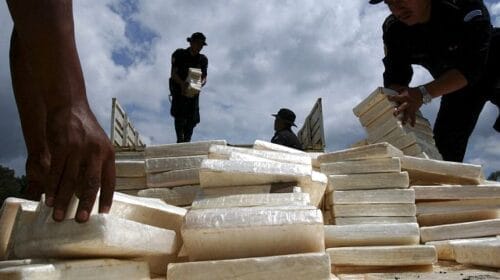Somalia recalls ambassador to Kenya in row over alleged political interference

The Horn of Africa has once again experienced renewed tensions this weekend.
Somalia decided to recall its ambassador to Nairobi and expel the Kenyan ambassador.
In a statement, Somalia’s foreign Affairs Ministry accused Kenya of “overt and blatant interferences” in internal affairs in Jubbaland.
“In recent weeks, it has become apparent to the Federal Government of Somalia that the Kenyan government is placing great political pressure on the regional President of Jubaland, Mr. Axmed Maxamed Islaan in order to pursue its political and economic interests in Somalia,” the statement read in part.
“For that reason, the Federal Government of Somalia recalls the Ambassador of the Federal Republic of Somalia to the Republic of Kenya, Mr. Maxamed Ahmed Nur Tarzan, and instructs the Ambassador of the Republic of Kenya to Federal Republic of Somalia, Mr. Lucas Tumbo, to depart to Kenya for consultation,” it added.
This is not the first time that diplomatic relations between the two countries have been strained. After oil fields off the coast, disputed by both countries, were auctioned off by Somalia, Kenya recalled its ambassador to Mogadishu last February.
The state of Jubaland, one of Somalia’s five semi-autonomous states and a buffer zone with Kenya, is now at the center of diplomatic tensions between the two East African countries.
The latest incident notwithstanding, Mogadishu authorities have in recent weeks not only accused Nairobi of meddling in its internal affairs, including the backing of Jubaland President Ahmed Madobe
But what mainly disturbs many Somalis is the presence of Kenyan troops in the force of AMISOM, the African Union mission in Somalia, experienced as a rooting of the country in Jubaland.
Kenya Army fighting Al-Shabaab
In 2011, the Kenyan army had crossed the border to fight against Shabaab terrorists who were targeting the north of its territory.
Even though the presence of the Kenyan armed forces has diminished in recent years, Kenyan-led military operations have not ceased in Somalia.
While the African Union mission is expected to end its mandate in the country in December 2021, Kenya now faces a dilemma: whether to leave the fight against the main terrorist threat to the Somali army or to continue its operations in the name of protecting Kenyans.
What is certain is that its interests in its northern neighbor are not about to stop guiding Kenya’s military policy.
Disputed borderline
Kenya and Somalia have had a long simmering territorial dispute. The 62,000-square-mile triangle of the Indian Ocean has made the two neighbors lock horns and the dispute taken to the floors of the United Nations International Court of Justice (ICJ).
The battled area is said to be rich with oil, gas and tuna fish.
Somalia initially went to the ICJ In 2014, challenging a 2009 agreement that set its maritime border along latitudinal lines extending 450 nautical miles into the sea.
Kenya, which has always regarded the line to be its border pleaded with the international court to seek out of court settlement which Somalia refused.
Kenya insists that a maritime border is determined by a parallel to the line of latitude to the east as per the standards set by the colonial powers. It has further given maritime border examples like Kenya-Tanzania, Tanzania-Mozambique and Mozambique-South Africa.
Somalia has insisted that it is committed to the legal process after previous negotiations with Kenya failed to resolve the matter.
The matter has seen major foreign countries line England, United State, France and Italy pick sides.
Attempt at Resolution
The presidents of Somalia and Kenya had in May agreed to ease recent tensions following a heightened diplomatic row that informed Kenya warning Somalia against threatening its territorial integrity and sovereignty.
The two leaders had a phone conversation to steer their way forward. This never worked out from the current political temperatures between the two countries.
The two states have been co-operating in the long fight against the al Qaeda-linked, al Shabaab militants in Somalia. Kenya said the row over maritime territory could jeopardize that.
The International Court of Justice (ICJ)
Officials in Mogadishu are confidence they could secure the territorial integrity of the country through the legal process in The Hague. They expected the court to rule justly.
Somalia, which held the auction in London on Feb. 7 according to Kenya, denied the accusation. “There was no auction of oil blocks,” the government said in a statement.
Kenya said it had raised concerns with the Somali government a day before the auction after it noticed blocks in what it considers to be its maritime territory were included in the auction.
The ICJ court later ruled in 2017 that the Kenya’s maritime dispute with neighbouring Somalia will proceed to full trial.





